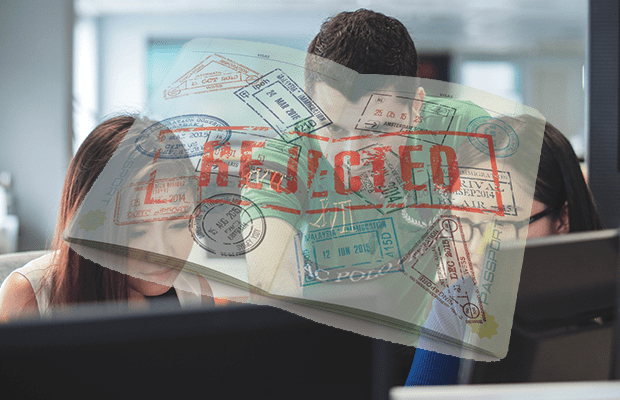International students completing postgraduate studies will require ministerial approval in order to change their course of study, thesis or research topic under new student visa rulings from 1 July.
In new regulations that were signed by the Governor-General at the end of March, students on a Subclass 500 (Student) visa will only be able to transfer courses if “the [Home Affairs] Minister is satisfied that there is not an unreasonable risk of an unwanted transfer of critical technology”. Presently, the Home Affairs Minister is Liberal MP Karen Andrews.
‘Critical technology’ is defined by the amendments as anything that will “harm or prejudice” Australia’s security or defence, the Australian public’s health and safety, Australia’s international relations, and anything that will “interfere or prejudice” the prosecution of a criminal offence against Commonwealth law.
It is also of note that these amendments were added to both the conditions of the Subclass 500 visa and the “public interest criterion” of the Migration Regulations (1994).
Such amendments are additional clauses to existing regulations that already require visa holders to prove to the Minister that they “are not likely to be directly or indirectly a risk to Australian national security” before transferring courses.
The changes will affect international students pursuing graduate certificates, graduate diplomas, master’s degrees, doctorates, or any bridging courses required as a prerequisite for a master’s degree or doctorate.
What does this mean for students?
The new ruling has clear implications for international students at universities, who have already been disproportionately affected by a slew of government measures in recent years, including strict border closures due to the pandemic.
In a statement to Honi, Sydney University Postgraduate Representative Association (SUPRA) Education Officer Yinfeng (Benny) Shen criticised the Federal government for showing a “poor level of compassion and understanding” for students and argued that the measures may undermine students’ ability to pursue their interests.
“University and education institutions [must] serve as a free land for students to identify the areas they are passionate about,” Shen said. “The new measure discourages the self-development process for students.”
Shen also expressed concern about students’ need for flexibility in their research topics throughout their studies, which is a fundamental and necessary aspect of most research projects.
On a broader level, the new regulations also follow government proposals for a “diversification index”, which raised concerns about “racial profiling” particularly for Chinese and Indian students, who make up the largest percentage of the international student cohort in many Australian universities.
Such proposals, which can be found in the Australian Strategy for International Education 2021-2030, encourage diversification on the basis of mitigating against “market shocks” and supporting a “better learning experience” for both domestic and international students. It also explicitly ties diversification with ensuring “freedom of speech and expression”.
The Go8 also expressed concerns in March about the proposed diversification index in a submission to the Department of Education: “The introduction of a Diversity Index in the current geopolitical and economic environment would send a negative message to students and their families who are currently considering Australia as a viable option for their higher education.”
The course change amendments, in this context, risk amplifying that negative message.
Why is this happening?
These changes fit within the context of rising geopolitical tensions between Canberra and Beijing as the Federal Government ramps up rhetoric against ‘foreign interference’. As such, they also raise questions about what constitutes the ‘public or national interest’.
Last year, Australian Security and Intelligence Organisation (ASIO) Director-General Mike Burgess fronted parliament and warned of “covert, clandestine and deceptive means to obtain Australian research”. This follows on from an incident in 2019, when ASIO alleged that China was behind a data breach at the Australian National University (ANU).
Although Prime Minister Scott Morrison has not released a list of what constitutes “critical technology”, it is expected to be broad and include “vaccines, autonomous vehicles, artificial intelligence”, among others. Framing the amendment as a “public interest” measure aligns with recent messaging from the Coalition about being tough on national security in the lead up to the Federal Election.
Such attempts to curb foreign interference in Australian universities also extend to research projects conducted by Australian researchers. In December last year, University of Sydney Vice-Chancellor Mark Scott accused acting-Education Minister Stuart Robert of “political interference” after vetoing peer-approved research projects approved for funding from the Australian Research Council (ARC).
Robert’s decision, which was made on Christmas Eve after months of delay, involved the veto of six projects, two of which involve research on China. At the time of the decision, a spokesperson for Robert said that the vetoed projects “do not demonstrate value for taxpayers’ money nor contribute to the national interest”.
In a statement to Honi regarding the amendments, Group of Eight (Go8) Chief Executive Vicki Thomson said: “The Go8 is extremely concerned about the potential consequences of changes to visas linked to research-based degrees and the damage it could do to our international research reputation.
“The Go8, which comprises Australia’s research-intensive universities, has sought input from our members, and we will be consulting with the Department of Home Affairs in the lead up to planned implementation of this regulation, which is due to come into effect on 1 July.
“The Go8 is committed to Australia’s national security, however the Government must strike a sensible balance between protecting critical research and safeguarding our place as world research leaders.”
The amendments have clear implications not only for postgraduate international students and the quality and accessibility of an Australian university education, but also for Australia’s relations with its neighbours in the Asia-Pacific region. It comes in the wake of increasing concerns about foreign interference, especially within public institutions like universities, as well as rising awareness of issues of racism and xenophobia. With an upcoming federal election looming large, Australians must consider the current and future state of our country’s education sector and the international student community.





